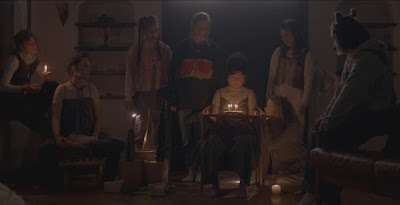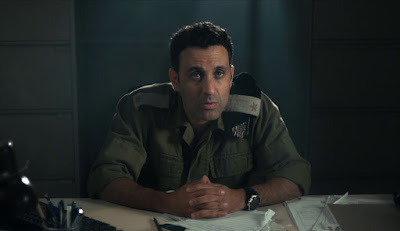ONE NATION, ONE KING (Un peuple et son roi, which translates into the far more meaningful title of "A people and their king') was written and directed by Pierre Schoeller (shown at left), who has done a couple of other interesting films (Versailles and The Minister), but nothing I'd seen prepared me for the breadth, depth and scale experienced here.
Schoeller has managed to combine beauty and spectacle with personal stories that grab us; political notions of many sorts (along with the particular folk who harbor them) that highlight the thinking of the time; and a look at the various classes -- from the French royal family on down to lesser royalty, the intellectual set, and the illiterate peasants and workers who strive for bread, shelter and some semblance of freedom.
Best of all, he gives all these characters their due, so that we come to understand, even if we cannot always sympathize with, their particular plight. And actually, he comes surprising close to gaining our sympathy, even for the French King, played extremely well by Laurent Lafitte (shown center, above and below). We first see Louis XVI performing a traditional religious ceremony in which he washes the feet of "poor children," and it is immediately clear, when one of the children actually speaks to him, that this King has no understanding or any genuine empathy for his people. And yet, over the course of the film, the more we see of him and his family, the more we come to understand the way in which extreme privilege both frees and imprisons its bearers.
The intelligentsia gets equal time, and we hear from a rather large number of them -- most impressively from the standout Denis Lavant (below, center) as Marat
and Louis Garrel (below) as Robespierre. Garrel gives us just barely a hint of the foul craziness that absolute power, even for a short time period, can bring with it.
The movie is awash with some of France's better thespians (that's Niels Schneider, below, second from right, as Saint-Just), but what these characters say proves every bit as interesting as who they are. I suppose it helps if you have some sense of France's history. Mine is certainly not that good, but I still found the film as intelligent as it is rousing.
In the roles of the working folk, constantly prodding for their betterment and freedom, Adèle Haenel and Gaspard Ulliel (below, left and right respectively) are front and center as the romantic leads. They are just fine (as always), but it is Olivier Gourmet in the role of the town's glassblower who proves (along with Lavant's role in the intellectual set), the film's standout.
How M. Schoeller weaves together all these characters and classes, their philosophies and intents, is exemplary. His pacing; use of sharp, short dialog; and especially his occasional action scenes -- the massacre of unarmed protestors ordered by the Marquise de Lafayette is the film's emotional high point, as well as its turning point regarding the strength of the Republican protests -- all combine to make One Nation, One King a resounding success.






















































